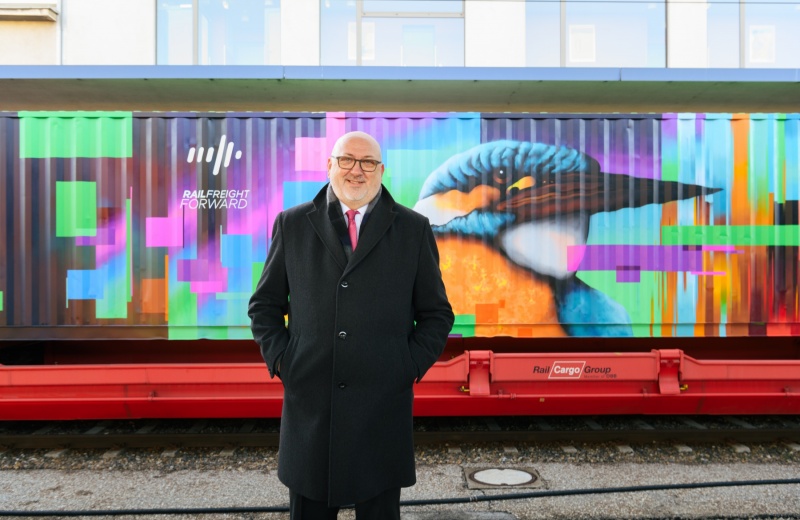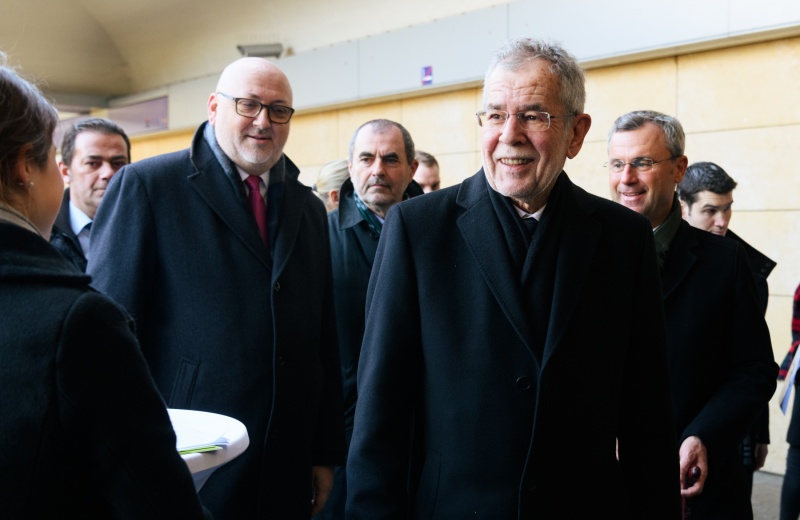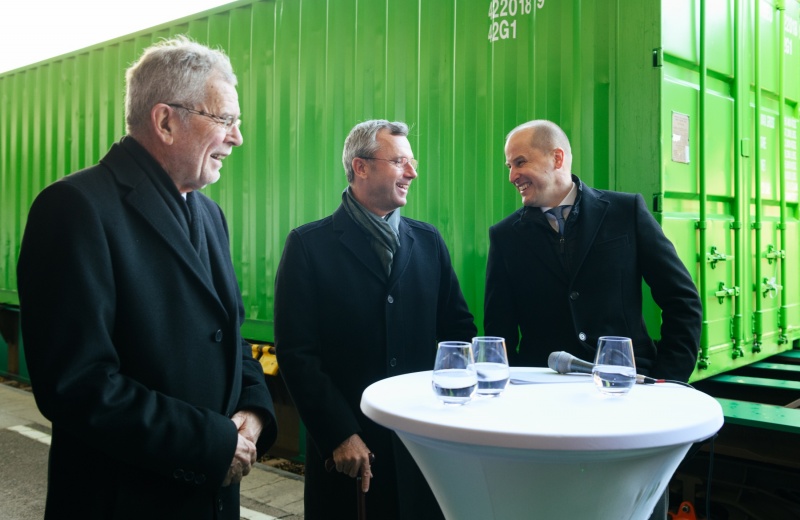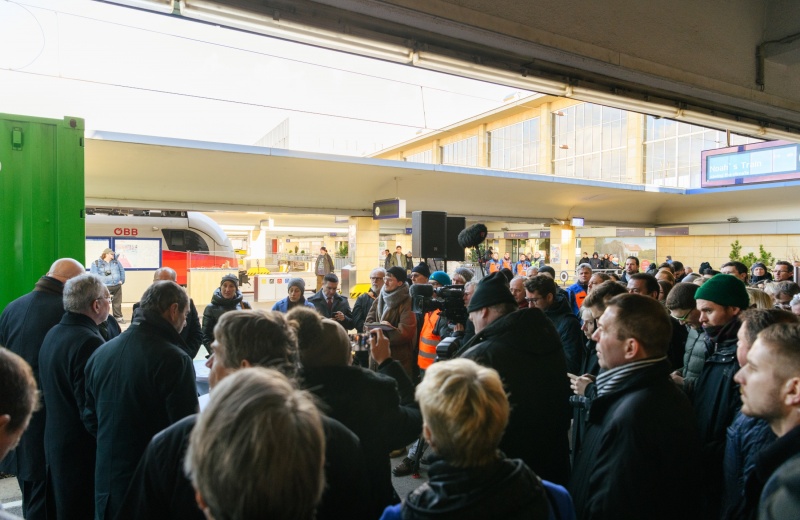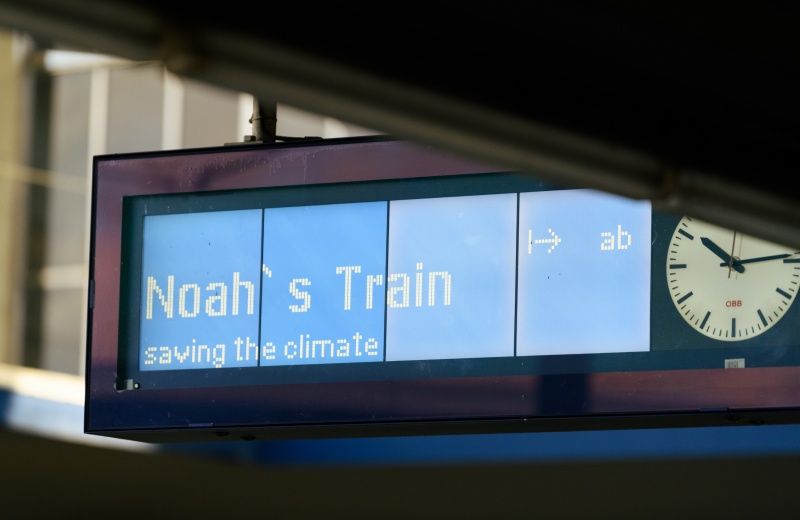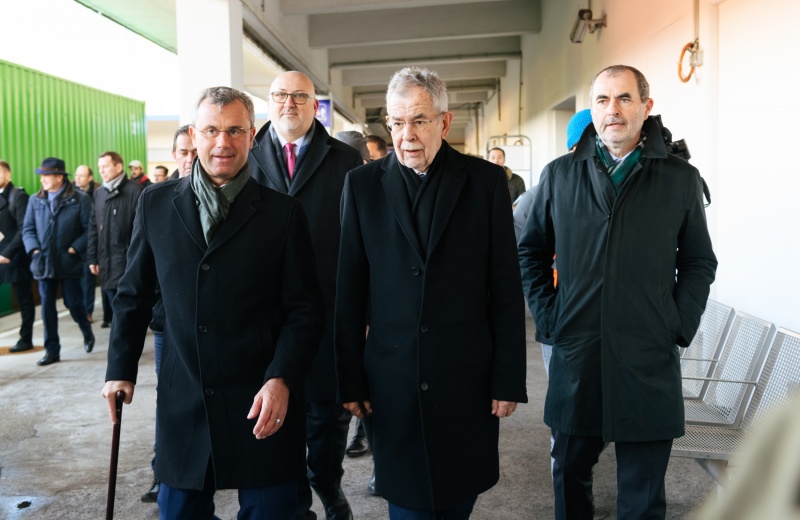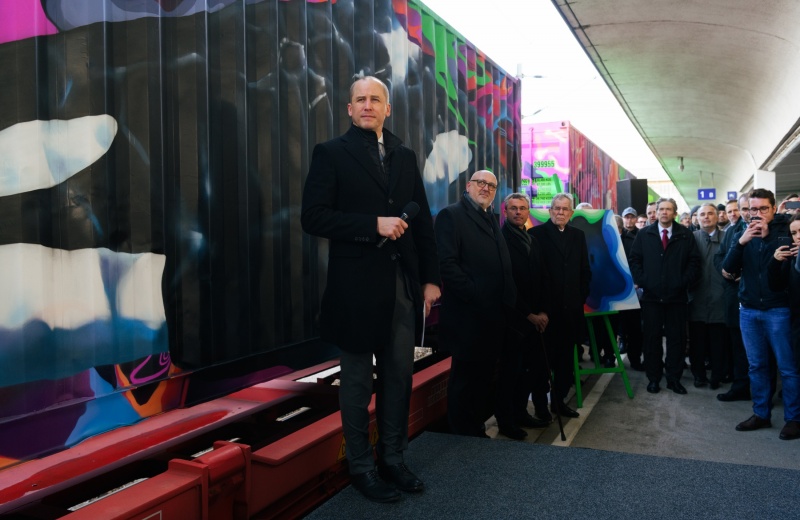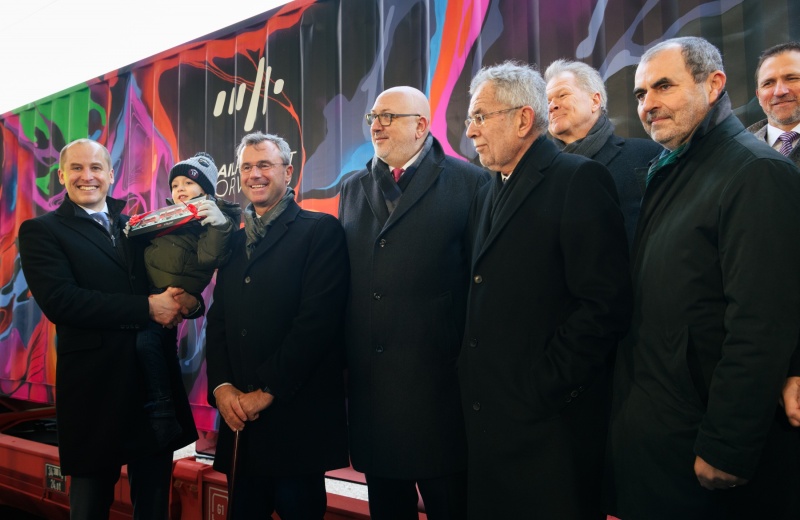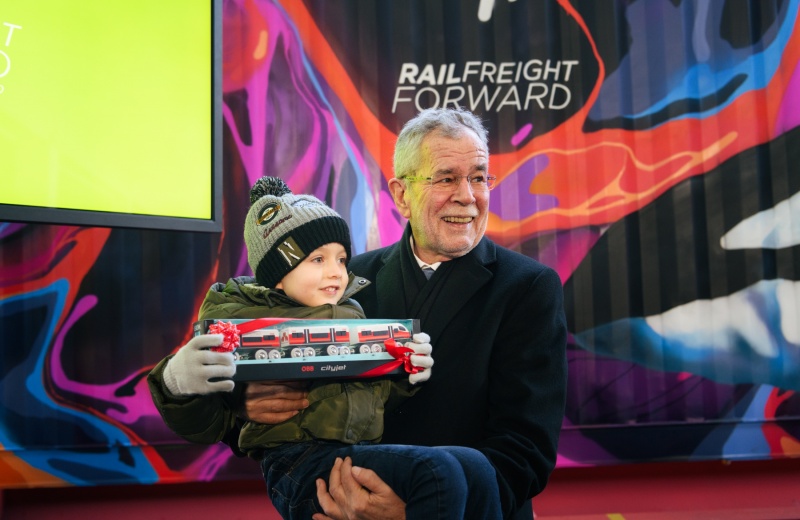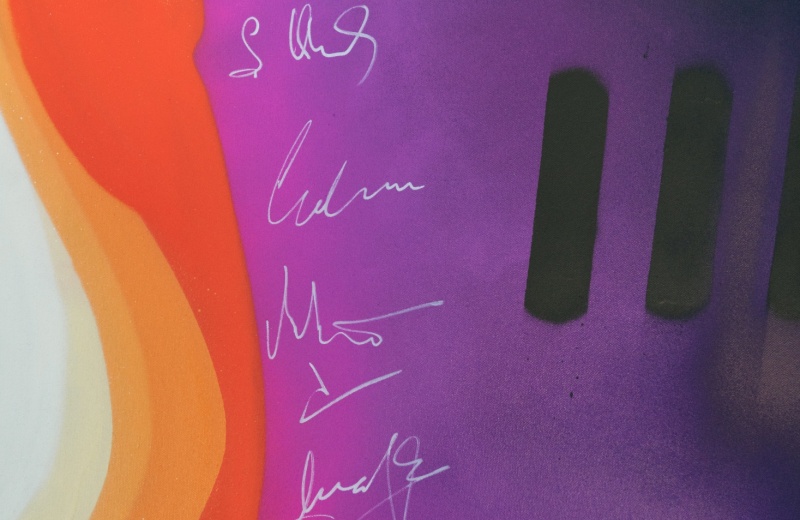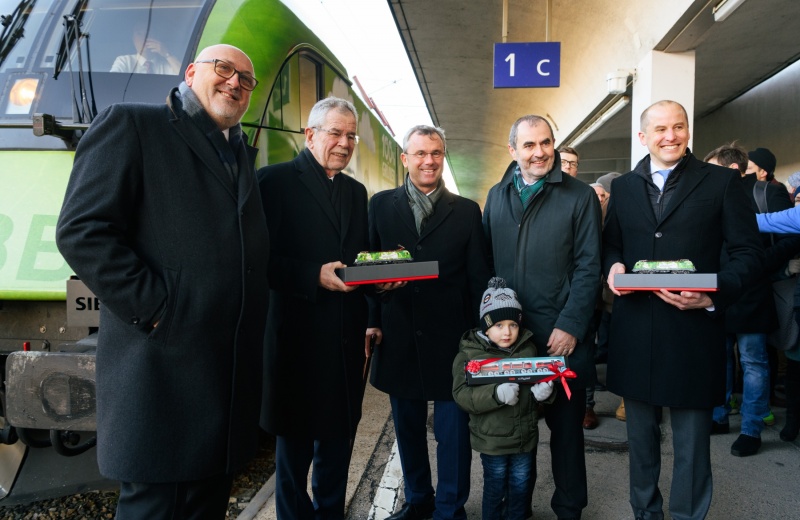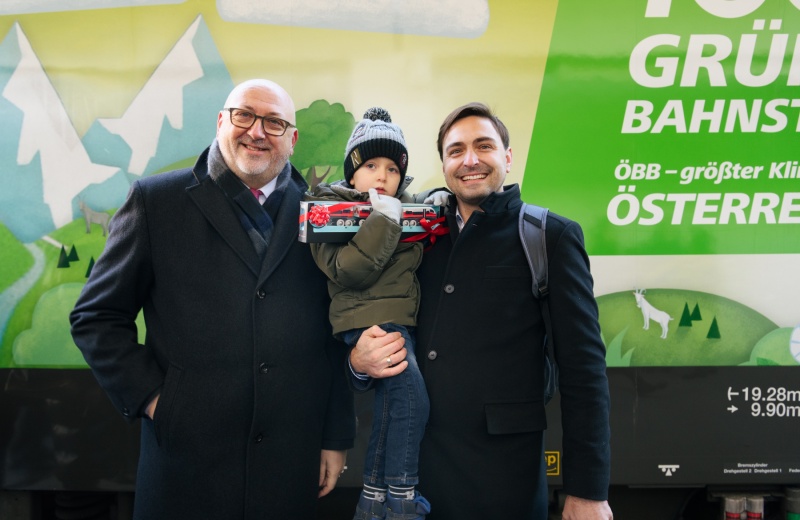-
Only rail freight can manage transport growth in Europe - in terms of sustainability, safety and infrastructure capacity.
-
Noah's Train is not only the longest mobile work of art in the world, but also the synonym for green rail transport.
(Vienna, 14.01.2019) – Noah's train" is inspired by the oldest story of environmental protection. The container train, artistically designed with animal motifs, makes its way through Europe to set a strong exclamation mark for climate-friendly freight transport. Noah's Train was launched in mid-December during the World Climate Conference in Katowice, Poland. On the occasion of the stop in Vienna, the climate ambassador Noah's Train was received by Federal President Alexander van der Bellen, Federal Minister of Transport, Innovation and Technology Norbert Hofer, ÖBB CEO Andreas Matthä, as well as the CEO’s of the Rail Freight Forward-Initiative at the Vienna Westbahnhof. Shortly afterwards, it said goodbye on its further journey through Europe. Noah´s train is an initiative of the Rail Freight Forward coalition of European rail freight companies and supporting sector associations.
THE VISION OF CLIMATE-FRIENDLY GOODS TRANSPORT
Rail Freight Forward is a pan-European initiative. The aim is to communicate to the public in Austria and Europe that rail freight transport is an essential response to the challenge of climate change. Transport is one of the biggest sources of CO2 pollution and the greenhouse effect. Shifting freight transport to rail is the quickest and most direct way to combat even more CO2 emissions and climate pollution. Rail Freight Forward should increase the share of rail in freight transport in Europe to 30 % by 2030. "Climate change threatens our society, economy, as well as the future of our children. We must act now and move as many goods as possible from road to rail. Freight transport by rail saves CO2 and protects the climate," says ÖBB CEO Andreas Matthä. "There is still a lot to be done for this modal shift: We need fair competition conditions between rail and road. For example, through tax relief for traction current and clear European-wide toll rules for road transports".
FIRST STOP: VIENNA
In Vienna, the Austrian contribution has been added in the form of further artistically designed goods wagons. Noah's Train expresses the vision 2030 of Rail Freight Forward and underlines the common commitment of ÖBB, economy and politics against climate change.
"ÖBB is a strong partner for Austria and Europe. Their business model is already sustainable per se and we are very happy to pursue all initiatives that are primarily taken in the field of sustainability," said Federal President Alexander Van der Bellen at the event.
30 UNTIL 2030
Traffic is the most effective lever to save CO2. In Europe, the transport market will grow again by 30% until 2030. "We must do everything we can to ensure that this growth takes place largely by rail. Austria often plays a pioneering role in Europe here, from investments in infrastructure to transport policy measures. With a modal split of around 30 % in Austria, we are the front-runner in the European Union," explains Federal Minister Norbert Hofer.
"One of the greatest global challenges for the coming decades in the field of environmental protection is undoubtedly the reduction of the greenhouse effect caused by human," affirms Josef Plank, Secretary General of the Federal Ministry for Sustainability and Tourism. Because the road transport causes 21 times more CO2 emissions in Europe than the train transport, it is about 85 times more unsafe. In total, the road transport leads to the fact that each of us will be stuck in traffic jam about 120 hours per year on average.
For this reason, the major European railway companies have launched the "Rail Freight Forward" initiative. The aim is to make it clear to the public and decision-makers throughout Europe that rail is essential for coping with the growth in transport in Europe. With the signatures of all guests and a clear commitment to climate protection, Noah's Train was jointly sent off. Next stops are Berlin (24.01.), Paris (5.02.) and Brussels (20.02.).

